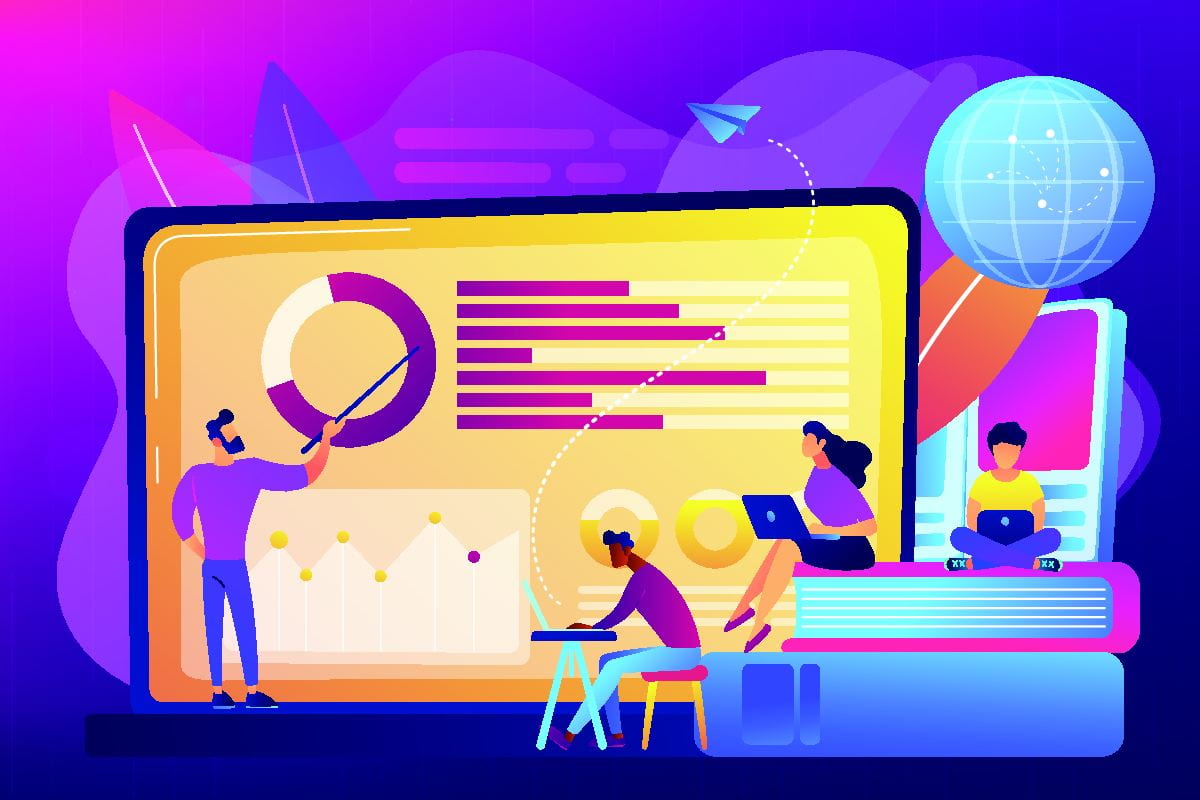
3 Types of Online Learning
Searching for the best online degree to suit your needs is no easy task, but finding the right fit in online learning style may be a lot easier. To help you differentiate between the different kinds of online learning, the most common approaches to online learning have been summarised so you can make an informed decision about your educational needs and find out which learning style would suit you best.
Blended learning
Blended learning, also known as “flexi learning”, “mixed-mode instruction” and “hybrid learning”, uses a combination of online learning and face-to-face learning. A common feature of this type of learning is that it gives you, as a student, some element of control over time, place, path and/or pace as:
-
- Time: Learning is no longer restricted to the school day or school year.
- Place: Learning is no longer restricted to the walls of the classroom.
- Path: Learning is no longer restricted to the pedagogy used by the teacher. Interactive and adaptive software allows students to learn [in a method that is customised to their needs].
- Pace: Learning is no longer restricted to the place of an entire classroom of students.[i]
Individual courses can utilise blended learning, where some of the content is learned online and the rest is learned in a brick-and-mortar location from an instructor. A key characteristic of blended learning is that there is always a connection between the different learning styles. In other words, what you learn online informs what you learn face-to-face, and vice versa.
Students are also able to create a blended learning experience for their whole programme of study by rotating between courses offered through online learning and traditional instruction. By participating in the combination of both experiences, they are engaged in blended learning.
Distance Learning
Distance Learning can be considered the “traditional” self-directed study course and is often also referred to as a “correspondence course”. The primary focus of distance learning is to provide education by distance so that students in other geographical locations can study a particular course or programme.
In many courses or programmes delivered through distance learning, materials and resources are sent to you via email or post and you must complete the tasks according to the set course schedule.
Although initially created for non-traditional students such as full-time workers, military personnel, non-residents, stay-at-home parents or those in remote regions, distance learning has become an established learning method in the modern educational world.[ii] As result, learning by distance has significantly increased access to learning opportunities for those who cannot attend conventional classes, and it allows you to fit study around work, social or family commitments.
In some cases, distance learning also incorporates some block learning, where you are required to attend classes on campus (or an alternate agreed location) for an intensive short period of learning typically ranging from one day to a week per course. Similarly to blended learning, this combination of learning approaches provides you with the opportunity to meet other students and participate in face-to-face learning experiences.
Fully Online Learning
Fully online learning typically refers to courses and programmes of study that are delivered completely online, meaning that there are no physical or on-campus learning activities.
Significant advances have been made in full online learning environments, and these virtual learning environments are used to share and store all the learning resources which include course readings, assessments, discussions, interactives, videos, podcasts and more. As an online student, you can access these learning materials at any time, making it possible for you to create a study timetable that fits around your family and work commitments.
A key difference between fully online learning and distance learning is that while distance learning focuses primarily on resolving the issue of geography for students who cannot access education otherwise, online learning focuses predominantly on the online environment as a virtual learning space, which is incorporated fully into the learning experience. This means that while fully online learning is available to those limited by location, it is also suitable for those of you who would prefer to learn through an online environment rather than the traditional classroom.
Although it may be assumed that embarking on a fully online qualification would limit your interaction with the academic staff and other students, Auckland Online understands the importance and necessity of building an online community of learning. The Auckland Online virtual learning platform (Canvas) will therefore provide you with consistent opportunities to discuss topics, ask questions and chat with fellow students via online discussion forums, providing a valuable and necessary peer-to-peer network of support and feedback. Some courses also include live webinar lectures, Q&As and office hours for academic support, allowing you to communicate in real-time with the academic staff.
Auckland Online also acknowledges that online students perform better if they receive personal support and guidance throughout their fully online programme of study. If you enroll in an Auckland Online programme we will assign you with a dedicated Student Support Advisor who is available to you via phone and email. Your Student Support Advisor will be able to answer all your questions about academic processes, your workload and the online learning experience.
Summary
In summary, there are many overlaps between blended learning, distance learning and fully online learning and it is easy to confuse these, particularly as many of these terms are used interchangeably even though they mean different things. If you are considering an online programme of study, make sure that you read all the relevant programme and University details to ensure that this path of study and type of online education is the right fit for you.
If you are interested in one of the Auckland Online programmes, or have any further questions about studying online, please contact one of our Programme Advisors – Enquire now!
[i] Heather Stacker and Michael B. Horn. Blended Learning. Innosight Institute, May 2012.
[ii] Gary A. Berg and Michael Simonson ‘Distance Learning’ in Encyclopaedia Britannica, November 2016.
